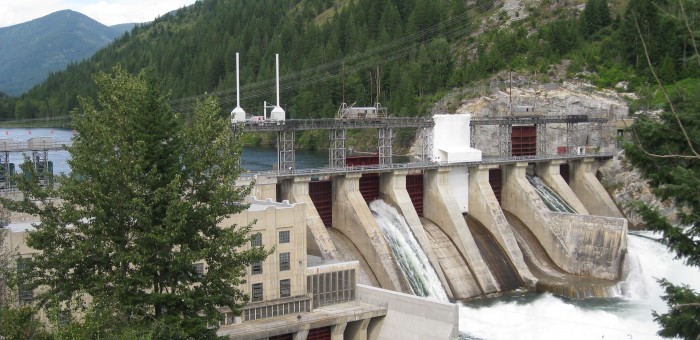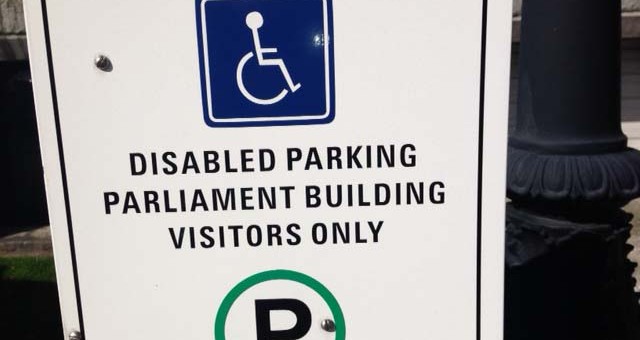Legislation
Bill 7 – 2017: Prevention of Cruelty to Animals Amendment Act
On Thursday last week we debated Bill 7: Prevention of Cruelty to Animals Amendment Act, 2017 at second reading. Every member of the legislature that rose to speak to the bill was in support of it.
Below I reproduce the text and video of my contributions to the debate.
Text of My Speech
A. Weaver: It gives me great pleasure to rise and speak in support of Bill 7, the Prevention of Cruelty to Animals Amendment Act, 2017. Like every member that has spoken before me in the House, I too, obviously, will be voting in support of this bill. It’s a bill filled with good news. But let’s explore some of the details a bit further. This bill provides a framework, which is important, for the licensing and/or registration of commercial breeders of cats and dogs.
Hon. Speaker, as you will know, earlier today I had a remarkable young woman in the Legislature, up there. This young woman was deeply and profoundly concerned about the health and well-being and ability of people to have miniature goats in their backyard. One of the questions, obviously, that I’ll be raising in committee stage is: does this legislation apply to the breeding of miniature goats, for example?
The details of this bill — like what I’ve come to see far too often in my four years — are not actually in the bill but are left for regulation down the road, by order of the Lieutenant-Governor-in-Council. And like every other bill we’re being asked to support here, we’re essentially saying: “Trust us to do what is right.” It really leaves one to wonder whether the government has actually done the necessary groundwork to know how this bill will play out through regulations, rather than just putting in a feel-good bill in the lead-up to an election.
I could actually see this. I can imagine TV commercials, as we enter the NHL playoffs, where we have cute little puppies, with people hugging them and saying: “The B.C. government is here for you. We’re here for you and the puppies.”
Interjections.
A. Weaver: I’ve given them an election suggestion. So you heard it here first, in the B.C. Legislature. The B.C. NDP and the B.C. Greens, of course, could do the same thing and say: “We supported this bill,” as we hug our puppies, in the lead-up to the election.
Truly, this is an important bill. But we’ve had four years in this Legislature to deal with substantive issues like this, and it has taken till pre-election time to actually bring this forward.
While many of the details are actually left to regulation, we do know, for example, that an external agency will be designated by future regulation, and that external agency will administer the system. Lots of vague language there. The agency’s inspectors will be responsible for inspecting and enforcing relevant standards of care. A lot of vague statements there too. Inspectors will be able to apply for a warrant to enter a residence if the owner’s consent is not provided. That’s obviously good.
Breeders found to be engaging in irresponsible practice may be subject to “an administrative action,” including having their licence or registration suspended or cancelled. Operators will be able to request a review or reconsideration of the administrative actions taken against them.
This bill has the support of the SPCA. We know that, as well, after they consulted, and the government consulted, with a variety of stakeholders.
One of the things that I would have liked to have seen in a bill like this — much as I would like to have seen in the Wildlife Act, for example — is where government actually has specific language that states that you are not going to be granted a licence if you have committed an offence against a similar type or piece of legislation in another province.
Now, why I say that is that in the case of wildlife, we have stories coming forth of guide outfitters who, in other provinces, have actually been fined for offences through not appropriately abiding by the rules of the province. Yet in B.C., the Wild West of B.C., it doesn’t matter who you are, we’ll give you a guide-outfitting licence. That is irresponsible, which is why I would have liked to see something a little stronger here in terms of who gets licences.
The essence of the bill falls into two sections: section 4 and section 5. These, actually, are designed, in the first case, to impose prohibitions and duties on operators who must be licensed or registered to engage in a regulated activity. For example, it requires a licence. A regulated operator is to make available to an inspector their licence or a certificate of registration and display the licence or certificate and provide information to the public.
Also, an operator may not charge a fee for providing information to the public or a person who may acquire an animal from an operator. The problem here again…. It has been alluded to by two of my colleagues, the member for Cowichan Valley and the member for Nanaimo–North Cowichan. The member for Cowichan Valley is well-known within this Legislature for looking at legislation under a microscope, peeling through the details with a fine-toothed comb, searching for jiggery-pokery in any form or any fashion.
It’s interesting what he was able to find here. It’s not his. He gives credit to the person who brought it to him, but he received some important information, and that is something I would like to explore. I’m sure the member for Cowichan Valley will as well at committee stage. It’s to the effect that we’re introducing red tape, regulation, for the people already following the law. Those who don’t follow the law are likely not going to be coming, knocking on doors and saying: “Give us a permit. We’re going to actually display that permit so that everyone can tell that we’re not actually following the law.” The underground aspect of those kind of puppy factories that we’re introducing legislation for….
It’s not clear to me that this is actually being dealt with, or the extent to which there are some proactive measures taken by the government to seek out such people. Do they simply have to wait until somebody makes a complaint and then follow the legislation subsequent to receiving such a complaint?
As I mentioned, section 5 is the other meaty part of this bill. That sets out the procedures for applying for a licence or registration and provides inspection power for enforcing the licensing or registration scheme. It also provides a designated agency to establish a minister and enforce a licensing or registration scheme and for training and oversight of employees as licensing officers, reviewing officers and licensing inspectors.
Again, you know, when you read the bill, there’s nothing really of any substance to criticize. There are a few concerns that my friend and colleague from Cowichan Valley has noted, but this is really a bill about protecting animals. I’ve heard each and every person here speak to this. What I noted in their speeches is every person talked about the love of their dog that they had when they were a child. But let me tell you: I didn’t have a dog as a child. I didn’t have a dog as a child because I was allergic to dogs, and my mother was allergic to dogs. So I can’t speak with passion to the love of my dog. However, when I left home, my parents….
Interjection.
A. Weaver: I did watch Old Yeller. The member for Peace River South pointed out that Old Yeller evokes passion in anyone who watches it. It was a very disturbing movie to me when I was a child to see Old Yeller get hydrophobia and start to turn against the young boy who once was his soulmate, his partner. That was troubling. Perhaps Old Yeller had actually got that from a puppy farm. We’re so lucky today that that will be regulated by this particular government. This government is actually stepping in to do what Old Yeller’s little boy couldn’t do, which is protect the future of their puppy from the puppy farm and the diseases they get.
My parents did have a lovely dog, and we have several of them. They were non-allergic dogs, so they were able to have them when I was older. They were delightful pets. They were passed down from family to family because others got old and they couldn’t take care of the dogs.
I remember my parents’ dog’s first name. It was Lisitsa. Lisitsa is a Ukrainian name. I believe it means fox. I could be wrong, but I believe it meant fox. It was a lovely name for a very vibrant dog that kept my parents company. We had a subsequent dog. It was Lisa. It was another dog, very similar. It, too, was loved by my parents. Even thought it was hypoallergenic, I couldn’t enjoy the pleasures of dogs. So while I understand, having watched Old Yeller, the importance of this bill, I could never actually feel it personally like the member for North Vancouver–Seymour or the member for Cowichan Valley — all these heartfelt stories. The member for Nanaimo–North Cowichan with his husky.
I missed out in childhood. Maybe I should be seeking therapy over that, after listening to these speeches here today.
Interjections.
A. Weaver: Some of of the members opposite feel the same way.
Anyway, the reason I bring that up, of course, is this is a very important bill. I’ll be speaking in support of it. I have. I will be following up in committee stage. It is important that we treat our pets properly.
But there are so many other issues facing the people of British Columbia. Why is this government not bringing in legislation to deal with affordability issues? Why is this government not dealing with a very problematic aspect of our society, which is the liability of pet owners for the behavior of their pets?
On the order paper, you’ll see some bills there. I spoke last session about the Animal Liability Act and changes. This time I’ll speak about the Community Charter so that we can actually ensure that not only the breeders of pets but also the owners of pets are held accountable for their treatment and ownership of the pets that they have under their care.
This is important. The government is missing that. It’s not dealing with this. It’s going with the election ad during hockey games, holding puppies and saying: “We are here for you, British Columbians. We are here to support your puppies.” I mean, really. There are so many other issues we should be debating. We should be talking about health care. We should be talking about education. There are so many bills. What about poverty? What about social welfare rates? Why aren’t we seeing legislation here? Why are we focusing on a number of bills that are brought forward?
The last session of this government being in office. We’re dealing with the Budget Measures Implementation Act and a lovely bill to protect puppies. We all agree it’s a lovely bill. There are a couple of other bills that we’re getting, but there’s nothing. This is a government that is so lost, so out of touch with the issues facing British Columbians that they’re pulling bills off the shelf that they’ve had to fill the time rather than actually standing up and dealing with the prevailing issues in British Columbia.
The fact that…. This time four years ago we had been promised 100,000 jobs, a $100 billion prosperity fund, a $1 trillion increase in GDP, elimination of the PST, thriving schools and hospitals, three LNG plants and all of us wealthy in their lead-up to the last election. Where is it? It’s not here. Why aren’t we talking about that?
Are we going to see them taking out ads in the hockey games, hugging puppies and saying: “We’re here for you, British Columbians; we’re here for your puppies”? Or are they going to stand up and say: “We’re sorry we misled you for the last four years by promising you nonsense, despite the fact that the lone B.C. Green MLA in this Legislature said it wasn’t going to happen in 2012, said it wasn’t going to happen in 2013, said it wasn’t going to happen in 2014, said it wasn’t going to happen in 2015”?
Around that time, the minister of hot air and gas pointed out that I was going to eat my words, and he was looking forward to that time. He knew more than I did because he meets with these people. Two years later here we are. Where is it? It’s misleading.
What are we doing? We’re debating here the Prevention of Cruelty to Animals Amendment Act. Well done, B.C. government. Well done dealing with those issues that are affecting everyday life for British Columbians here. Let’s talk about puppies. Give me a break. Obviously, I support this bill, but there are so many other bills that we should be talking about. That is what we should be spending time here, and that’s why I’m going to sit down now, because I hope we get to those other issues and to talk about them as we come forward.
Video of My Speech
Bill M232 — Motor Vehicle Amendment Act, 2017
Today in the legislature I introduced Bill M232 — Motor Vehicle Amendment Act, 2017. This Bill would amend the Motor Vehicle Act, by prohibiting the tampering with emissions control devices in motor vehicles. This amendment would bring BC legislation in line with Ontario’s Environmental Protection Act, and the Clean Air Act in the United States.
The Canadian Trucking Alliance have called on the federal government to enact similar legislation because of inadequate and inconsistent provincial oversight. They are concerned about both the environmental effects arising from, as well as the potential for the creation of unfair business advantages for, those tampering with emission control devices. In addition, this legislation would prevent the practice of coal rolling (see video below).
Below I reproduce the text and video of my introduction of the Bill.
Text of my Introduction
A. Weaver: I move that a bill intituled the Motor Vehicle Amendment Act, 2017, of which notice has been given, be introduced and read a first time.
Motion approved.
A. Weaver: This bill will amend the Motor Vehicle Act by prohibiting the tampering with emissions control devices in motor vehicles.
This bill adds language to the Motor Vehicle Act to explicitly prohibit the removal of emissions control devices installed by manufacturers and prohibits the operation and sale of a motor vehicle that has had its emission control device tampered with or removed.
It also increases the fine that can be levied on contraveners to provide a stronger disincentive against tampering. Tampering with emissions control devices in cars and trucks increases air pollution, undermining progress on reducing emissions and resulting in harmful environmental and human health effects.
As the Canadian Trucking Alliance has noted, provincial regulations and enforcement vary widely across Canada. This amendment would bring British Columbia legislation in line with Ontario’s Environmental Protection Act and the Clean Air Act in the United States.
I move that the bill be placed on the orders of the day for second reading at the next sitting of the House after today.
Bill 232, Motor Vehicle Amendment Act, 2017, introduced, read a first time and ordered to be placed on orders of the day for second reading at the next sitting of the House after today.
Video of my Introduction
Bill M231 — Ensuring municipalities actually have residents!
Today in the legislature I introduced Bill M231 — Local Government Amendment Act.
If passed, this Bill will ensure that municipalities in BC cannot be incorporated without first ensuring that there are residents actually living in the area at the time of incorporation. This might seem like an unnecessary bill as it would seem obvious that a municipality, governed by a Mayor and two Councillors, should actually have people and property to govern. Well that’s not the case in the wild west of British Columbia politics.
Back in 2012, the BC Liberals amended The Local Government Act to allow mountain resort municipalities to be created that have no residents. In particular, this was done in support of the proposed Jumbo Glacier Mountain resort that I have written about earlier.
Given opposition to the resort by the Ktunaxa Nation, the fact that the environmental assessment certificate has expired, and that the project has not substantially started, it seemed timely to close the loophole for good as it sets a dangerous precedence.
Below I reproduce the text and video of my introduction of the Bill.
Text of my Introduction
A. Weaver: I move that a bill intituled the Local Government Amendment Act, 2017, of which notice has been given in my name, be introduced and read a first time now.
Motion approved.
A. Weaver: I’m pleased to be reintroducing a bill intituled the Local Government Amendment Act. It’s absurd that in British Columbia today a municipality exists that has no houses, no infrastructure and no people. The Jumbo Glacier Resort is designated as a mountain resort municipality, and despite not having any people, it has a salaried, province-supported mayor and two councillors.
This government created the loophole that has allowed this municipality to exist, despite there being no residents. It was created solely for the purpose of a specific pet-project that this government wants to proceed.
This bill would close this ridiculous loophole and ensure that municipalities in British Columbia actually have people living in them.
I move that the bill be placed on the orders of the day for second reading at the next sitting after today.
Bill M231, Local Government Amendment Act, 2017, introduced, read a first time and ordered to be placed on orders of the day for second reading at the next sitting of the House after today.
Video of my Introduction
Bill M228 — Energy and Water Efficiency Act, 2017
Today in the legislature I rose to table Private Members’ Bill entitled: Bill M228 — Energy and Water Efficiency Act 2017: As I noted in introducing it, this Bill was originally tabled by the Liberal government in 2012 as Bill 32 — Energy and Water Efficiency Act. The Bill received support from all sides of the legislature when it was introduced in 2012. Unfortunately, it was never brought to the Committee of the whole house and subsequently third reading. We missed an opportunity in 2012 to pass this legislation. I hope that the government chooses to pick this up at this time.
Text of Bill Introduction
A. Weaver: I move that a bill intituled the Energy and Water Efficiency Act, 2017, of which notice has been given, be introduced and read a first time now.
Motion approved.
A. Weaver: I’m pleased to introduce a bill intituled the Energy and Water Efficiency Act, 2017.
This bill was originally tabled by the Liberal government in 2012. This is a bill that the Minister of Energy and Mines, at the time, said would reduce consumers’ energy bills and lower operating costs for B.C. businesses.
This legislation would replace the current Energy Efficiency Act. It would enable administrative penalties to ensure manufacturers, distributors and retailers comply with energy efficiency guidelines, broaden the scope of energy efficiency requirements to include commercial energy systems, industrial reporting and water efficiency and enable the minister responsible to enact regulations for technical standards.
It was a good and widely supported piece of legislation. It seems that the only reason it went to second reading and wasn’t taken to committee was the fact that the official opposition supported it.
I move that the bill be placed on the orders of the day for the second reading at the next House after today.
Bill M228, Energy and Water Efficiency Act, 2017, introduced, read a first time and ordered to be placed on orders of the day for second reading at the next sitting of the House after today.
Video of Bill Introduction
Bill M227 — Court Order Enforcement Amendment Act
Today in the legislature I introduced a private members Bill M227 —Court Order Enforcement Amendment Act, 2017. The bill adds Registered Disability Savings Plans (RDSPs) and Registered Education Savings Plans (RESPs) to the list of plans protected under the act.
Registered Retirement Savings Plans (known as RRSPs) were first introduced federally in 1957. Legislation enabling Registered Retirement Income Funds (known as RRIFs) was subsequently brought forward in the late 1970’s.
RRSPs and RRIFs are protected in BC and most other provinces from creditors in the case of personal bankruptcy. Protecting these funds provides a glimmer of hope that individuals undergoing bankruptcy will not be destitute in their old age.
In 2008 Federal legislation was passed to allow for the creation of Registered Disability Savings Plans (RDSPs). The RDSP is a federal, tax-deferred, long-term savings plan for people with disabilities who want to save for the future. Unfortunately, under our outdated Court Order Enforcement Act, 1996, RDSPs are not listed as a registered plan in BC’s legislation and are therefore not exempt from creditor protection. Should an individual with an RDSP go into debt, their savings in the RDSP will not be protected from seizure. The same is true for Registered Education Savings Plans (known as RESPs). A child should not have their education investment seized due to misfortune that befalls their parents. Alberta has protected RESPs; we should follow suit.
I asked the Minister of Justice about this problem in question period three years ago. At the time, the Minister said that it was an important issue and that she’d be glad to work with me to move it forward. Yet three years have now passed and still nothing has changed. Seeing as I haven’t seen any meaningful progress from the government on this simple legislative change, I decided to offer them a possible solution, yet again.
Text of Bill Introduction
A. Weaver: I move that a bill intituled the Court Order Enforcement Amendment Act, of which notice has been given, be introduced and read a first time now.
Motion approved.
A. Weaver: Registered retirement savings plans are protected in this province from creditors in the case of personal bankruptcy.
Protecting these funds provides a small safeguard that individuals undergoing bankruptcy will not be completely destitute in their old age. It is a good law that most provinces in Canada have adopted.
However, there is no protection for funds that are part of a registered education savings plan or a registered disability savings plan. These are important funds that need equal protection, recognizing that a child should not have their education investment seized due to a misfortune that befalls their parents.
The Alberta government has passed legislation to protect RESPs. It is with this in mind that I bring this bill forward today. This bill amends the Court Order Enforcement Act to ensure that RESPs and RDSPs are protected by law from predators.
I move that the bill be placed on the orders of the day for second reading at the next sitting of the House after today.
Bill M 227, Court Order Enforcement Amendment Act, introduced, read a first time and ordered to be placed on orders of the day for second reading at the next sitting of the House after today.








